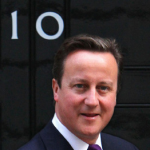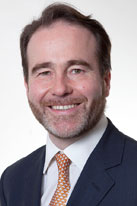Tuesday, January 28th, 2014
 Thousands of rules affecting business are to be scrapped or amended, David Cameron has told a Federation of Small Businesses (FSB) conference.
Thousands of rules affecting business are to be scrapped or amended, David Cameron has told a Federation of Small Businesses (FSB) conference.
More than 3,000 rules will be dropped or changed, saving more than £850m a year, he told the FSB. They include 640 pages of cattle movement guidance, 286 pages of hedgerow regulations and 380 pages of waste management rules.
Mr Cameron said he wanted to “get out of the way of small business success.” He said his government would be the first in history to end a term in office with less regulation on the statute books than when it came into power.
Reducing red tape, cutting business rates, and scrapping the jobs tax from April 2015 were ways the government was supporting small businesses, said Mr Cameron.
He said, “We need to be a country that celebrates enterprise and backs risk takers,” and citing some regulations, he thought should go, Mr Cameron said, “If you want to sell oven cleaner in this country you need to have a poison licence.”
Other reforms that have been or will be implemented under the government’s Red Tape Challenge include:
- Environment: new guidance on contaminated land and hazardous waste • Food labelling: regulations to be reduced from 30 to 17
- Road transport: 142 regulations “scrapped or improved” – 36 million vehicles will no longer need a paper tax disc
- Aviation: 48 out of 83 regulations “scrapped or improved”
- Health and safety: “at least one million self-employed” removed from health and safety regulation, and more than 100,000 “low-risk businesses” exempt from inspections
- House building: 100 “overlapping and confusing standards” applied to new homes reduced “to less than 10” – estimated saving £64m
The Department for Environment, Food, and Rural Affairs (Defra) will have slashed 80,000 pages of environmental guidance by March 2015, saving businesses around £100m per year, the government said
Other proposed measures for small businesses include a £1.1bn package of business rates relief, £100m of broadband vouchers to help businesses get online, and up to £2,000 each in growth funding for 20,000 small businesses.
Thursday, January 23rd, 2014
 Overall crime fell by 10% in England and Wales in the year to September 2013, official figures show.
Overall crime fell by 10% in England and Wales in the year to September 2013, official figures show.
The Crime Survey of England and Wales (CSEW) said there were eight million crimes against households and adults in that period. It is the lowest estimate since the survey began in 1981.
The figures, published by the Office for National Statistics (ONS), estimate crime levels based on how many people say they have been victim of a crime. The ONS also published police figures, which showed there had been 3.7 million offences in the same period, a decrease of 3% compared with the previous year.
Crime Prevention Minister, Norman Baker MP, said, “England and Wales are safer than they have been for decades with crime now at its lowest level since the survey began in 1981. The government has made clear that recorded crime statistics must be as robust as possible and we have a strong record on reinforcing their independence and accountability.
“We asked HMIC (HM Inspectorate of Constabulary) in June to carry out an audit of the quality of crime recording in every police force. And earlier this month, the home secretary wrote to chief constables emphasising that the police must ensure that crimes are recorded accurately and honestly.”
Prime Minister David Cameron tweeted “congratulations” to police, saying the fall in crime was “bringing security to people”.
The number of sexual offences recorded by police increased by 17%, which the ONS said “is likely to be partly due to a continuation of a ‘Yewtree effect’, whereby a greater number of victims have come forward to report historical sexual offences to the police”.
There were “signs of increasing upward pressures” in some other offences, including a 4% rise in shoplifting and a 7% increase in theft from the person, the ONS said. Fraud offences recorded by police went up by 34%.
The ONS said, “This rise should be seen in the context of a move towards improved recording of fraud following a move to centralised recording by the police. In addition, there were 292,814 reports of fraud to the National Fraud Intelligence Bureau from industry bodies.”
The CSEW said household crime, related to vehicles and property, was down by 10%, while personal crime, including thefts from the person and violent crimes, was down 9%. It also estimated there were 859,000 crimes experienced by 10-15 year olds.
There was a 13% fall in violent crime estimated by the survey in the year to September 2013. The overall number of incidents estimated by the CSEW is 20% lower than in the 2007/8 survey and is less than half the 1995 peak level.
National policing lead on crime statistics, Chief Constable Jeff Farrar, described the fall in crime in the CSEW as “encouraging”.
He said, “Accurate crime statistics are not only essential in holding police accountable for the work they do in the ongoing fight against crime, but also vital in ensuring that police officers and staff are deployed to the right place at the right time.
“It is disappointing that the UK Statistics Authority has decided to remove the National Statistics designation from police-recorded crime statistics as this has come at a time when the service is working to make crime statistics more transparent, more accountable and assure the public of the figures’ integrity.”
Thursday, January 23rd, 2014
Christopher Pincher, MP for Tamworth, called on the Prime Minister to commend the many companies that are moving to Tamworth and bringing new jobs to the town during yesterday’s PMQ’s in the House of Commons.

Christopher Pincher with David Cameron during a visit to Tamworth
Christopher also invited Mr Cameron to visit Tamworth to see how the local economy is improving under the Conservative led coalition Government.
Mr Pincher said, “Voyage Care and Igloo are just two of the companies that have set up shop recently in my constituency, bringing hundreds of new jobs to an area where long-term unemployment has fallen by 35% and youth unemployment by 40%.
“Will my right hon. Friend commend the good sense of those companies for coming to Tamworth, encourage more to do the same and consider visiting Tamworth so that he can see for himself how our long-term economic plan is delivering results?”
The Prime Minister replied, “I am always happy to visit Tamworth and spend time in the shadow of Sir Robert Peel. I have enjoyed visiting my hon. Friend’s constituency in the past. We are seeing a recovery, particularly in jobs and getting people off the unemployment register.
“It is worth noting that today’s figures also show that full-time employment is up by 220,000, compared with just a 60,000 increase in part-time employment. That shows that people are getting the full-time jobs that they want. I am happy to commend the businesses he is welcoming to Tamworth.”
Wednesday, January 22nd, 2014
 Staffordshire’s Conservative elected Police and Crime Commissioner, Matthew Ellis, wants to buck the national trend for police council tax increases.
Staffordshire’s Conservative elected Police and Crime Commissioner, Matthew Ellis, wants to buck the national trend for police council tax increases.
Mr Ellis’ plans for a zero increase will be discussed on Monday 27 January with Police and Crime Panel members who will give their views before he makes a final decision.
The Commissioner is responsible for setting the budget for policing, community safety and reducing crime across Staffordshire and Stoke-on-Trent in 2014/15. His plans mean people will face no increase in the police and community safety portion of their council tax received by the PCC.
Savings made in the last 12 months, the budget for 2014/15 will see neighbourhood-policing numbers protected, more recruitment of new police officers and further investment in technology and other new processes, which will save even more money through joined-up working.
Mr Ellis said, “With a £4.3 million reduction in overall budget for 2014/15, the easy option would be to turn to local council tax-payers to meet the additional short-fall. But I don’t want to do that. Through good housekeeping, I want to spend every penny of public money better, meaning local taxpayers are an absolute last resort.
“Budgets are in a strong position so that the financial challenges can be met. I’m going to continue to drive efficiencies, spend money more effectively in a joined up way and ensure Staffordshire Police and local authorities have the resources to keep crime reducing. In the coming year, £2.5 million will be going to local areas to fund community safety projects, which is more than twice as much as ever before.
“Over the last 12 months, we’ve made good progress working with the police in bringing in new arrangements to make significant financial savings. We’ve been able to get new thinking and talent flowing by recruiting new officers for the first time in years. The plans for the next few years are ambitious, so we’ll need new blood and the brightest and best talent to deliver them. That’s why the recruitment tap will stay firmly switched on.
“Things are moving fast here in Staffordshire, there are real opportunities through scrapping silo thinking, joining up the public sector to work together towards common outcomes.
“It’s about making significant savings and improving services, which I am confident we can achieve. I want Staffordshire to have the best police service in the country by 2016. In Staffordshire we’re playing our part towards the national financial challenge and I’m confident it’s a challenge we can meet.”
Wednesday, January 22nd, 2014
 Tamworth’s MP, Christopher Pincher, questioned the Foreign Secretary on EU migration during the latest debate on European Union (Free Movement) yesterday in the House of Commons.
Tamworth’s MP, Christopher Pincher, questioned the Foreign Secretary on EU migration during the latest debate on European Union (Free Movement) yesterday in the House of Commons.
Mr Pincher said, “What recent discussions he has had with his EU counterparts on reforming the principle of free movement within the EU?”
The Foreign Secretary, William Hague MP, replied, “I discussed free movement with my Hungarian and Bulgarian counterparts last week. My right hon. Friend the Minister for Europe raised free movement at the December General Affairs Council and the Prime Minister was clear at the December European Council that free movement cannot remain completely unqualified.”
Christopher continued, “When my right hon. Friend discusses these issues with his counterparts in Europe, will he remind them that because British immigration was previously out of control, if there is to be confidence here in the single market, and if we are to welcome talented and skilled migrants to work in our country, a broken system that allows mass population movements from the south to the north of Europe, because migrants think that if they cannot get jobs, they can certainly get generous benefits, must be fixed?”
Mr Hague responded, “Certainly I make the point to colleagues across the European Union that the long-term sustainability of the free movement of workers requires the sort of reforms that my colleagues in the Government have announced in recent weeks, particularly on rules that govern our social welfare system. Other member states share our concerns on abuse of free movement, particularly Germany, Austria and the Netherlands, so we will continue to make these points.”
Sunday, January 19th, 2014

Matthew Ellis in Tamworth
Lives Released, a Lichfield-based community chaplaincy scheme to help people leave lives of crime, is expanding to Tamworth using a grant from Staffordshire’s Police and Crime Commissioner’s Proceeds of Crime Fund.
Lives Released has supported ex-offenders across Lichfield district through mentoring and befriending since its launch in July 2012. It has two community chaplains who give practical advice on budgeting, life and work skills, family issues and training in an effort to reduce re-offending.
A £5,000 grant has been given to Lives Released to fund the chaplaincy work as it expands to support ex-offenders in Tamworth.
Conservative PCC Matthew Ellis is ensuring that 100 per cent of funding received by Staffordshire Police from proceeds of crime seizures is going back to local communities.
The Proceeds of Crime Fund (formerly known as the Local Policing fund) is supporting projects in conjunction with local policing teams and local authorities. It is made up of assets and money seized by police from criminals in Staffordshire under the Proceeds of Crime Act.
Mr Ellis said, “For the first time, 100 per cent of funding that comes back to Staffordshire Police from proceeds of crime seizures is going directly to local communities.
“Tackling the root causes of crime that lead to re-offending through exciting projects like Live Released is absolutely crucial. The evidence is clear that reducing repeat offending, and in some cases ‘breaking the cycle’ which is often generational, really works, not just in short term, but for years to come.”
The scheme’s Executive Finance Officer Geoffrey Parkinson said, “We are currently working across Lichfield district and this money will support our work as we launch in Tamworth.”
Bids for funding from the PCC’s Proceeds of Crime Fund had to demonstrate a clear connection with reducing crime and fit into one of the Commissioner’s four priority areas: intervening early, putting victims first, preventing offender and re-offending, and improving public confidence.
For more details on Lives Released ring 07582 360889 or 07729 883822 or email livesreleased@gmail.com.
Friday, January 17th, 2014
 Police and Crime Commissioner Matthew Ellis says getting better value for money is key to maintaining frontline policing in Staffordshire and Stoke-on-Trent.
Police and Crime Commissioner Matthew Ellis says getting better value for money is key to maintaining frontline policing in Staffordshire and Stoke-on-Trent.
Dealing with issues such as the sale of the former police headquarters’ site, which has lain empty since 2010 costing nearly £3 million, are crucial to releasing money into local policing. The old HQ site was vacated following the decision by the Police Authority to buy new HQ buildings in Weston Road, Stafford.
The Conservative PCC replaced the Police Authority in November 2012 and more than halved the bill of almost £1 million a year for the empty site by levelling it in 2013.
Mr Ellis said, “I inherited an immensely complex situation from the Police Authority which had not been moved forward. I am frustrated at the amount of money spent on maintaining an empty site, which could have instead gone into frontline policing in Staffordshire and Stoke-on-Trent.
“My decision to demolish the site has instantly saved almost half a million pounds a year in tax-payers’ money and I’m determined to pay down the overall debt and release more money into local policing. Although it has taken a few months longer than I’d ideally have liked, I’m now about to appoint agents to help dispose of the site so that in the next few months we should be in the position to further bolster frontline policing resources.”
Friday, January 17th, 2014
 Chancellor George Osborne has said he wants to see an above-inflation increase in the minimum wage.
Chancellor George Osborne has said he wants to see an above-inflation increase in the minimum wage.
He has said the “economy can now afford” to raise the rate, currently set at £6.31 an hour for people over the age of 21. The call comes after Labour claims that the economic upturn has not translated into improved living standards.
But Mr Osborne said it was Labour’s fault that they had fallen and he was aiming to make people better off. The value of the minimum wage, paid to an estimated 1.35 million people, has fallen in real terms since the financial crisis of 2008. The current rate of inflation is 2%.
Conservative Mr Osborne said it would have to increase to £7 an hour by 2015 for its value to return to where it was before the economic downturn struck. The rate is recommended by the Low Pay Commission, which is overseen by Liberal Democrat Business Secretary Vince Cable.
He said the coalition, since coming to power in 2010, had “rescued the country from the brink of disaster and got us into a position where we can now see the minimum wage going up for people and, more broadly. I want living standards to go up for the whole country as we fix the economy.”
Mr Osborne said, “Britain is poorer because of what happened to it in the great recession. People in the country are poorer because of what happened in the great recession.
“I want to make sure we are all in it together, as part of the recovery, which is why I want to see above-inflation increases in the minimum wage, precisely because the British economy can now afford that. This government, and I as chancellor, are on the side of hardworking people. I want a welfare system that supports work, that’s fair to those who use it and those who pay for it.”
He added that the government was planning another “big increase” in the amount of money people can earn before paying income tax and defended his plans to remove a further £12bn from the welfare budget.
The minimum wage rate for workers aged 18 to 20 is £5.03 an hour, while it is £3.72 for under-18s.
Friday, January 17th, 2014
 Yesterday in the House of Commons Tamworth’s MP, Christopher Pincher, called on the Leader of the House to hold a debate on Mid Staffordshire NHS Foundation Trust and the Francis report.
Yesterday in the House of Commons Tamworth’s MP, Christopher Pincher, called on the Leader of the House to hold a debate on Mid Staffordshire NHS Foundation Trust and the Francis report.
Mr Pincher said, “The scandal at Mid Staffordshire still casts a long shadow over the patients, families and health care professionals in my county. I pay particular tribute to my hon. Friend Jeremy Lefroy; he is in his place, who has been a sterling champion of local concerns.
“The Prime Minister has made it clear that he favours having a debate on the matter. Will the Leader of the House find time for such a debate as soon as possible?”
The Leader of the House of Commons, Andrew Lansley MP, replied, “I am grateful to my hon. Friend and join him in thanking our hon. Friend Jeremy Lefroy and colleagues across Staffordshire for their assiduous work in following up on the concerns of their constituents.
“He is quite right that the Prime Minister has made it clear that we are looking to have a debate on the Francis report in due course. As I made clear to the House before, I did not feel that it was appropriate to have such a debate before there had been a full Government response. We had that response at the end of last year, and some of it is being reflected in measures coming forward in the Care Bill.
“However, I hope that it will still be possible to have a more general debate shortly on the Francis report and the Government’s response, because it raises issues much wider than those specifically covered in the Care Bill.”
Sunday, January 5th, 2014
 David Cameron has said the state pension would continue to rise by at least 2.5% a year until 2020 if the Conservatives win the next election.
David Cameron has said the state pension would continue to rise by at least 2.5% a year until 2020 if the Conservatives win the next election.
The Prime Minister has pledged to keep the “triple lock” system, which ensures the state pension goes up by whichever is higher – inflation, wages or 2.5%. He said it was “fair” to prioritise pensions even at a time when benefits for younger people were being slashed.
Mr Cameron has described the “triple lock” announcement as the “first plank” of the Conservative general election manifesto. But in an interview with the BBC’s Andrew Marr Show, he rejected suggestions it was a purely political move aimed at attracting older voters back to the Conservative fold.
The Prime Minister told Andrew Marr, “It’s a choice based on values, based on my values. I want people when they reach retirement to know that they can have dignity and security in their old age.
“People who have worked hard, who have done the right thing, who have provided for their families, they should then know they will get a decent state pension and they don’t have to worry about it lagging behind prices or earnings and I think that’s the right choice for the country.”
Newer Posts —
Older Posts
 Thousands of rules affecting business are to be scrapped or amended, David Cameron has told a Federation of Small Businesses (FSB) conference.
Thousands of rules affecting business are to be scrapped or amended, David Cameron has told a Federation of Small Businesses (FSB) conference.









